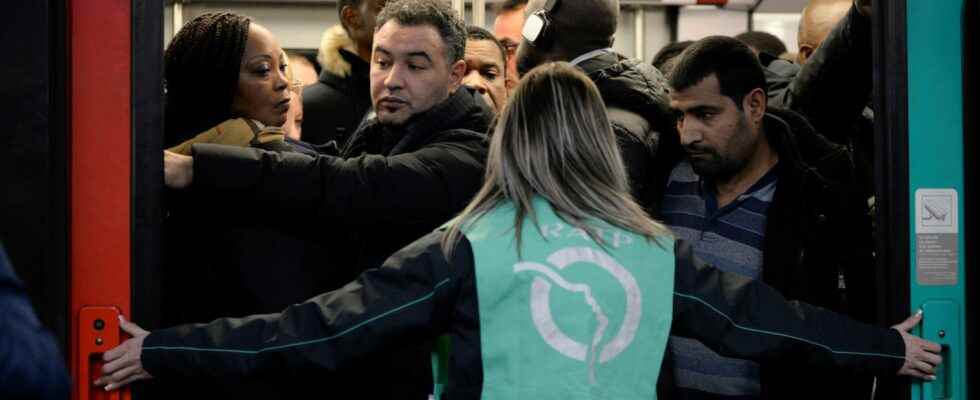Faced with the exasperation, legitimate because quantified, of users of public transport in the Ile-de-France region, the Île-de-France Mobilité network presented, this Friday, January 13, its resolutions to improve the service as a whole. The facts were first recalled: in the last quarter of 2022, a quarter of the bus supply was missing, while users had to skip “10% to 20% of the supply metro”, according to the president of the region, Valérie Pécresse. However, network traffic has returned to 90% of its 2019 level. Appointed president of the RATP last November, Jean Castex also wanted to present his “apologies”, and expressed his will ” to make things better”.
To this end, the RATP has set a clear objective: a gradual return to normal, which would be achieved in April. At least for the metro. While 180 metro driver positions were opened in 2022, there will be 400 in 2023. To make up for the lack of drivers – more than a thousand resignations were recorded last year – the RATP also plans to turn to apprentices. Beyond the drivers, a lack of personnel providing maintenance is also highlighted by Jean Castex. “For these trades, I intend to recreate internal training centers at RATP,” he said. At the start of the year, three lines are in difficulty and five fragile, that is to say more than half of the network. Note an upsurge in the number of abandoned packages compared to the pre-Covid period, which adds disruption to the poor situation.
Disturbing but necessary work
And if the RATP plans to act jointly on the lack of personnel and the faults in maintenance, the question arises of the difficulties caused by the numerous works planned for 2023. Valerie Pécresse admitted that this was “a necessary evil”, which will eventually reduce incidents on the metro and RER lines. While it is the busiest network in Europe, the RER B (partially operated by SNCF) operates with “30% of its signal boxes built before 1950”, according to the CEO of SNCF Réseau Mathieu Chabanel. If the boss of SNCF Voyageurs, Christophe Fanichet, admits, for his part, the difficulties, which only a regeneration of the network will make forget, he mentions that on average “punctuality is guaranteed at 91%”.
As for buses, of which 17% of the service is currently not provided in Paris and its inner suburbs, the RATP is more cautious in its objectives. It hopes to gradually restore service, until it reaches 98% of total capacity in the summer. In this sense, the RATP has already signed an agreement with two unions providing for an extension of the working time of bus drivers by 40 minutes per day on average, in exchange for a salary increase of 372 euros gross monthly. The declarations of Ile-de-France carriers are therefore full of promise, and they can count on users, who saw the Navigo pass subscription jump by 12% on January 1, to monitor its proper implementation.
